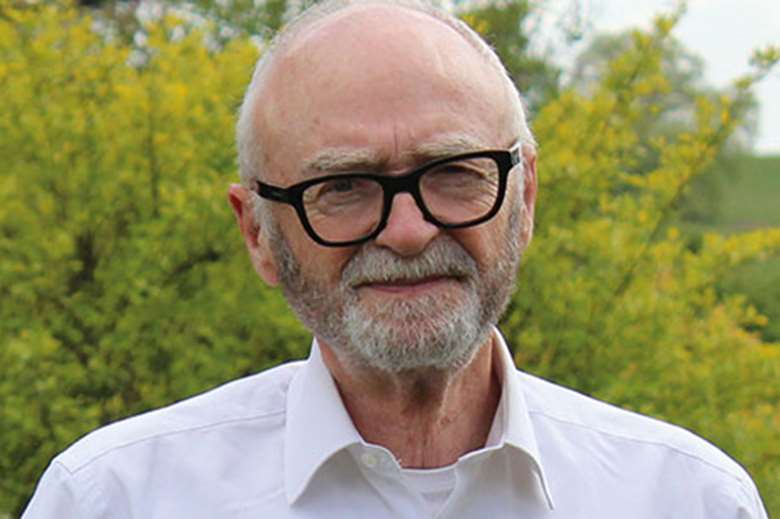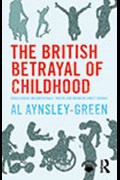Championing childhood
Sir Al Aynsley-Green
Monday, October 1, 2018
Sir Al Aynsley-Green argues that our approach to early years comes at a huge economic cost to individuals and society

Children matter – to parents, families and communities in every village, town and city across Britain. Quite simply, they are our nation’s most precious resource, not only as citizens today but because of the massive changes in demography with more older people living longer. Who will generate the wealth to support them? The children of today.
So, through an economic lens I argue we need healthy, educated, creative and resilient, happy children equipped with the life skills for those who can to become confident adults and parents in due course. But we must also make sure that those who can’t through disability or disadvantage are also supported to their full potential.
Surely this should drive political strategy and policy? But does it? My ‘forensic’ analysis described in my new book The British Betrayal of Childhood concludes that it doesn’t.
Looking at Finland
Yes, we have fantastic children everywhere, many overcoming difficulties of illness or disadvantage that are not of their making; most are supported by loving families and motivated staff in children’s services. But the uncomfortable reality is that we have some of the worst outcomes overall for children across health, social care, education, youth justice and poverty in the developed world.
The ‘exam’ question is ‘why’? A question that politicians seem unwilling to answer.
Join me in Finland to ask why it has some of the very best outcomes for children worldwide. Colleagues there tell me that their success is due to ‘our attitude, Al’ to the importance of children, family stability, education and local community responsibility for children. They tell me, too, that they are proud that their political policies are based on long-term consensus and common sense.
Their strategy begins with getting a great start in life.
So, I’m visiting a nursery and kindergarten in Helsinki to see for myself what it’s like, and immediately I see life on a different planet to here.
I’m told that the staff are graduates, many with Master’s degrees in child development. I’m also told it’s highly competitive to work in the early years – only one in ten students is accepted, training being coterminous with general teacher training.
They tell me they are well-paid, and much respected for working with young children in a valued profession supported by the local community.
There are no inspections or competitive league tables, staff being trusted to do a great job and to educate children through the science of play.
‘School readiness’ to them means that schools are ready to accept all children. Children do not start formal school until they are seven.
Social failing
How different to early years work here, where we have zealous political ideology driven by ‘group think’ to get mothers back to work with accountability through tests and league tables. Our hard-working early years staff lack public stature for the great job they are trying to do – they are poorly paid and their nurseries struggle to recruit against the impact of austerity that is closing Sure Start and Children’s Centres.
All of this is despite the irrefutable evidence that Treasury officials are, seemingly, unaware of – that the earliest of years are crucially important for brain development and later emotional well-being and resilience. Adverse experiences in childhood are known to be associated with many serious long-term conditions in adulthood, and even decreased length of life.
The economic cost to individuals and society is huge. Early intervention is key to prevent this.
So, what do babies and children need to thrive? In my view they need ‘nurture’, and this should be everybody’s business, as best encapsulated in the African proverb ‘It takes a whole village to raise a child’.
Thus parents are fundamentally important, but do we invest enough in preparing people for the most important job in the world? My answer is no, we don’t.
It’s not just parents – local communities are vital for play, managed risk, connection with nature alongside sport, music and the arts. Faiths promote spirituality and purpose of life, while local authorities provide resources for statutory children’s services in health, education and social care supported by the voluntary sector.
In my view, building local community responsibility for their children must be a key way forward to improve the outcomes for our children.
Take action

I argue it is time to change public and political attitudes to the importance of children, and get a long-term, cross-political party, evidence-based agenda for children based on a clear definition of what we are trying to achieve for them. Developing effective advocacy for the best interests of children is urgently needed, alongside getting out of the bunkers and silos here to see best practice elsewhere.
‘It doesn’t have to be like this’ should be the mantra.
So, what do you think? If you agree, what are you going to do to shout from the roof tops and kick the doors down to improve the outcomes for our children?
- Sir Al Aynsley-Green's book The British Betrayal of Childhood is published now by Routledge, priced £13.99




